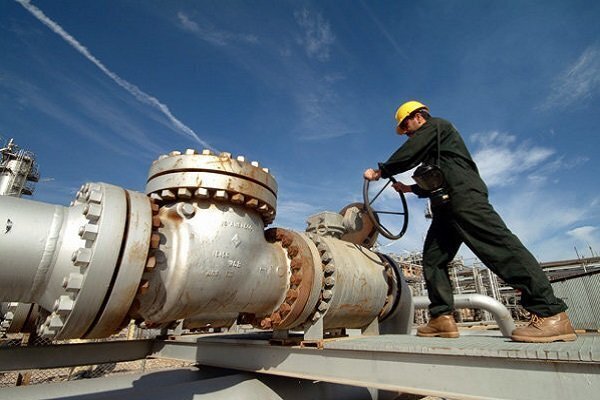Iran emphasizes gas diplomacy, rejects political use of energy resources

TEHRAN — Despite facing intense domestic challenges and unilateral U.S. sanctions, Iran remains committed to its role as a reliable gas exporter, particularly to its neighboring countries, including Turkey and Iraq, without using its energy resources as a political tool, according to Mohsen Paknejad, the Iranian Minister of Oil.
Speaking on the sidelines of the 26th Ministerial Meeting of the Gas Exporting Countries Forum (GECF), Paknejad emphasized Iran’s unwavering dedication to maintaining its role in the global energy sector. He asserted that despite the relentless restrictions imposed by the United States, Iran has consistently honored its energy agreements, particularly with neighboring nations, and has never sought to leverage gas exports for political advantage.
He stated that Iran’s commitment to exporting natural gas to key partners such as Turkey and Iraq underscores the country’s adherence to international energy principles, particularly those enshrined within organizations like OPEC and GECF. These organizations aim to regulate markets and foster cooperation among member states while minimizing the politicization of energy resources.
A cornerstone of global energy diplomacy
In a world transitioning to more sustainable energy sources, gas has become increasingly valued as a reliable and clean energy option. Paknejad highlighted that the gas sector is one of the most strategic assets for GECF members, emphasizing its role not just in driving economic and political development, but also in promoting synergy among countries. He added that Iran has successfully navigated the challenges posed by U.S. sanctions through robust diplomacy and unique strategies, maintaining both its position in the energy market and its credibility among energy partners.
Iran’s gas policy, according to Paknejad, revolves around fostering mutual interdependence and economic-political cooperation, focusing on utilizing gas as a clean and dependable resource, rather than as a tool for coercion. This diplomatic approach contrasts with the often-politicized handling of energy resources in other regions.
Gas diplomacy with neighboring countries
Iran’s relationship with its neighboring countries—especially Turkey and Iraq—has remained crucial in the context of its broader energy strategy. Despite being isolated by U.S. sanctions, Iran continues to honor its gas export commitments, ensuring the uninterrupted flow of natural gas to these countries. This steady supply has not only bolstered Iran’s reputation as a reliable energy partner but also reinforced its standing within the GECF, which brings together some of the world’s largest gas producers.
Iran-Turkey gas relations
Turkey has long been one of Iran’s key gas customers, receiving a significant portion of its natural gas supply through a pipeline that connects the two countries. This partnership has provided Turkey with much-needed energy security while supporting Iran’s economy. Despite external pressures, such as the U.S. sanctions on both nations, the gas trade between Iran and Turkey has continued without disruption.
This resilient partnership underscores Iran’s policy of energy diplomacy—prioritizing stability and cooperation over political leverage.
Iran-Iraq gas relations
Similarly, Iran has consistently met its gas supply commitments to Iraq, despite political challenges and external sanctions. The two countries share a long border, and Iran has been a critical gas supplier for Iraq, particularly for its power generation needs. This cooperation is vital for Iraq's economic recovery and infrastructure development, especially in the energy sector, where the country continues to face significant challenges.
In addition to bilateral trade, Iran’s gas exports to Iraq have allowed Iran to further solidify its role as a key energy player in the Middle East. The Iraq-Iran Gas Pipeline is a vital component of this collaboration, enabling both nations to benefit from the flow of natural gas to fuel Iraq's electricity grid. These transactions demonstrate Iran’s consistent commitment to maintaining strong, stable energy relationships with its neighbors, even in the face of international pressure.
***Looking Ahead: Iran’s gas sector and regional cooperation
As the global energy landscape continues to evolve, Iran’s strategy for its gas industry remains focused on fostering regional cooperation and minimizing the politicization of energy exports. By strengthening ties with neighboring countries and adhering to its commitments, Iran is positioning itself as a central player in the Middle East's energy sector. The country’s gas exports to Turkey and Iraq are a testament to its role as a dependable partner, capable of navigating geopolitical challenges and contributing to regional energy stability.
As the Gas Exporting Countries Forum and other international organizations work to ensure the stability of energy markets, Iran’s unwavering commitment to its gas trade agreements remains a cornerstone of its broader diplomatic efforts. Despite external pressures, Iran continues to view gas as a tool for cooperation and economic development, not as a lever for political maneuvering.
EF/
Leave a Comment